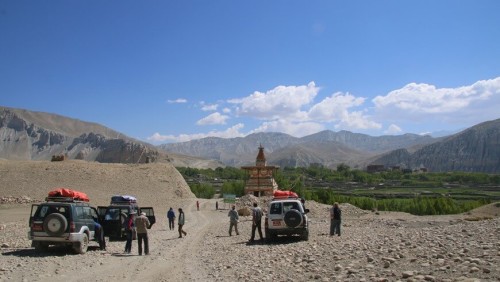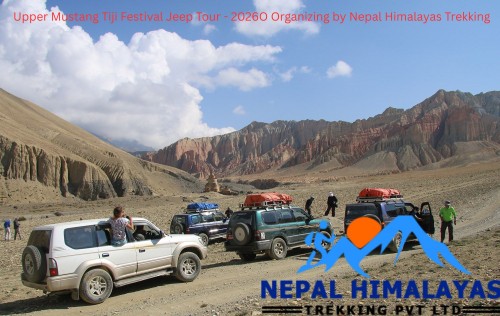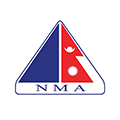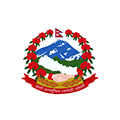Mustang Region, Nepal – The Forbidden Kingdom Beyond the Himalayas
Mustang Region, often dubbed the "Last Forbidden Kingdom of Nepal," is a mystical and majestic land nestled in the rain shadow of the Annapurna and Dhaulagiri ranges. Known for its stark desert landscapes, ancient Tibetan culture, and centuries-old cave monasteries, Mustang is a dream destination for trekkers, culture lovers, and adventure seekers.
Why Visit Mustang?
Mustang offers an extraordinary blend of natural beauty, cultural heritage, and spiritual depth. Unlike the green, lush trails of the Annapurna or Everest regions, Mustang unveils a high-altitude desert, with red cliffs, wind-swept valleys, and eroded canyons that feel more Tibetan than Nepali.
Here’s why Mustang stands out:
Authentic Tibetan Buddhist culture untouched by modernity
The walled city of Lo Manthang, the ancient capital of Upper Mustang
Incredible trekking routes, including the classic Upper Mustang Trek
Mysterious sky caves that date back over 2,000 years
Breathtaking Himalayan views of Nilgiri, Dhaulagiri, and Annapurna
Unique festivals, like Tiji, are celebrated with colorful rituals and masked dances
Upper Mustang vs. Lower Mustang
Lower Mustang
Accessible and less restricted, Lower Mustang includes places like Jomsom, Kagbeni, Marpha, and Muktinath—ideal for short treks and spiritual journeys. The sacred Muktinath Temple is a major pilgrimage site for both Hindus and Buddhists.
Upper Mustang
Restricted and more remote, Upper Mustang requires a special permit and a registered guide, offering a once-in-a-lifetime cultural experience. The region is less crowded and retains its ancient Tibetan roots with traditional villages, cave monasteries, and the royal palace of Lo Manthang.
Top Attractions in Mustang
Lo Manthang – A walled city with royal heritage, monasteries, and authentic Tibetan culture
Chhoser Cave Dwellings – Thousands of years old man-made caves carved into cliffs
Muktinath Temple – Sacred to both Hindus and Buddhists, known for 108 water spouts and an eternal flame
Marpha Village – Famous for apple orchards and traditional whitewashed houses
Kagbeni – A picturesque medieval village on the banks of the Kali Gandaki River
Tiji Festival – A spectacular three-day Buddhist celebration held in Lo Manthang during May
Best Time to Visit Mustang
Thanks to its location in the rain shadow of the Himalayas, Mustang is one of the few trekking regions in Nepal that is ideal during the monsoon (June to August). The best months, however, are:
Spring (March to May) – Blooming wildflowers, clear skies, and the Tiji Festival
Autumn (September to November) – Mild weather and panoramic mountain views
Monsoon (June to August) – Perfect for Upper Mustang as it stays dry
Trekking in Mustang
Upper Mustang Trek
Duration: 12–17 days
Difficulty: Moderate
Permits: ACAP, RAP (Restricted Area Permit)
Highlights: Lo Manthang, monasteries, caves, desert landscapes, and Tibetan villages
Jomsom Muktinath Trek (Lower Mustang)
Duration: 7–10 days
Difficulty: Easy to Moderate
Permits: ACAP, TIMS
Highlights: Jomsom, Marpha, Kagbeni, Muktinath Temple
Mustang Trekking Permits & Cost
To visit Upper Mustang, you need:
Restricted Area Permit (RAP) – USD 500 for the first 10 days, USD 50/day after
Annapurna Conservation Area Permit (ACAP) – NPR 3,000 (approx. USD 25)
TIMS Card – NPR 2,000 (approx. USD 15) (required for Lower Mustang treks)
Trekking in Upper Mustang is more expensive due to its restricted status, but the experience is unmatched.
How to Get to Mustang
By Air: Fly from Pokhara to Jomsom (20–25 minutes)
By Road: Drive from Pokhara or Kathmandu via Beni, Tatopani, and Marpha
Trek: From Beni or Jomsom through the Kali Gandaki Valley
Accommodation and Food
Accommodation ranges from basic tea houses to comfortable guesthouses. Traditional Tibetan and Nepali meals like dal bhat, thukpa, momos, and apple pie are commonly available. In Lo Manthang, some lodges even offer Wi-Fi and private rooms.
Tips for Mustang Travel
Carry enough cash, especially in Upper Mustang, where ATMs are unavailable
Hire a licensed guide for Upper Mustang—it's mandatory and enhances the experience
Respect local culture and dress modestly
Pack for cold weather—even in summer, nights can be chilly
Prepare for altitude—acclimatization is key above 3,000 meters













